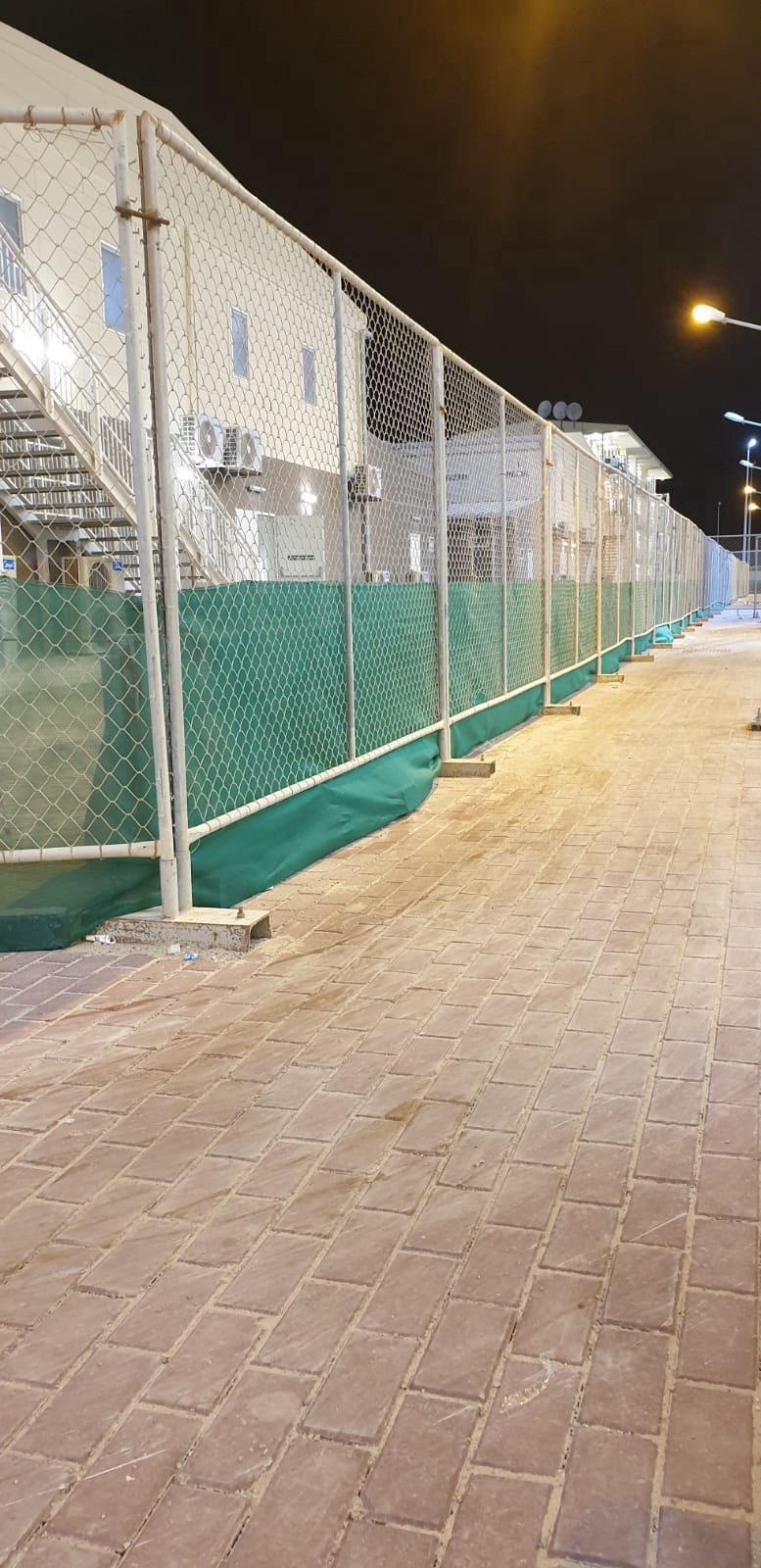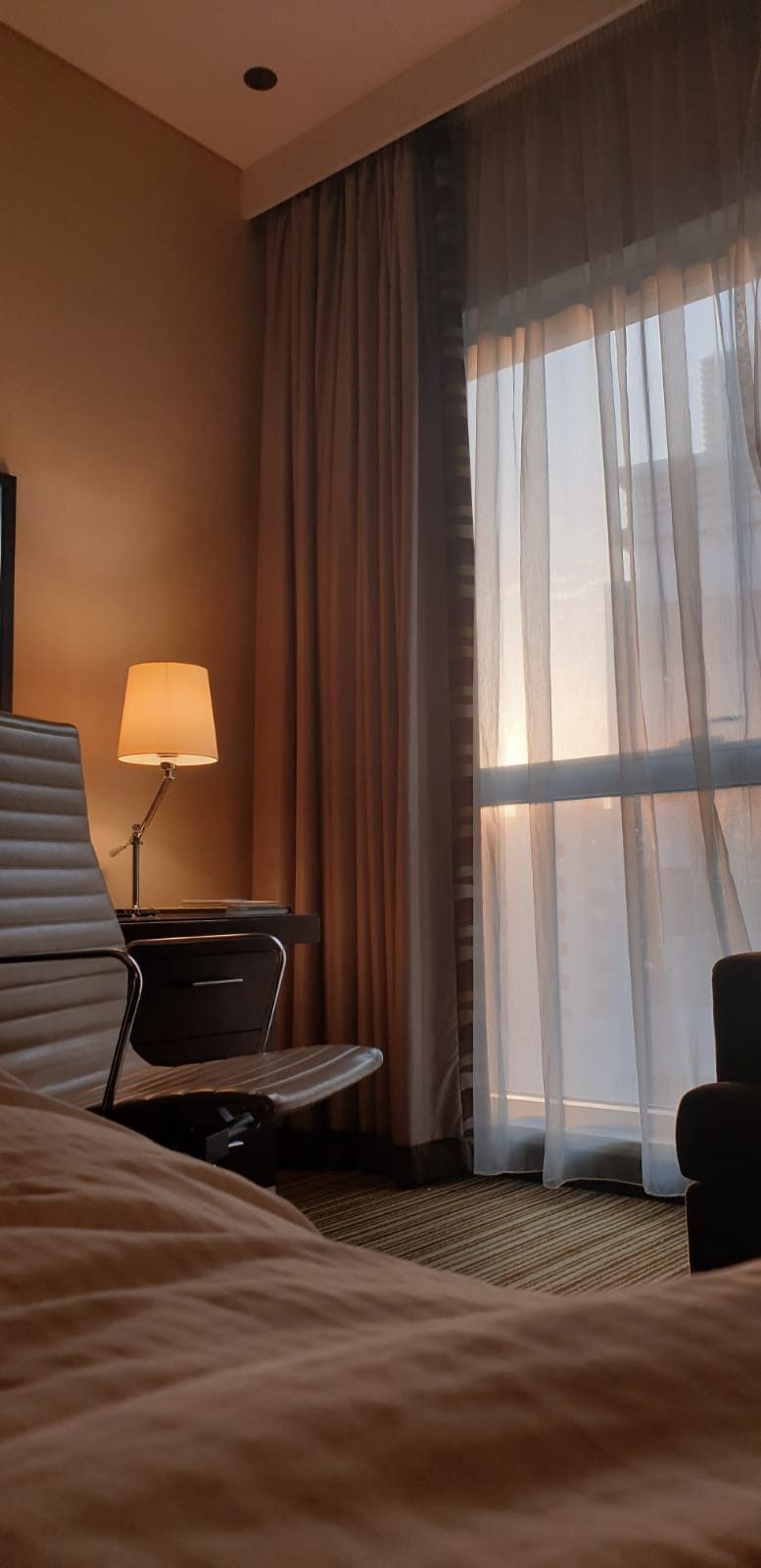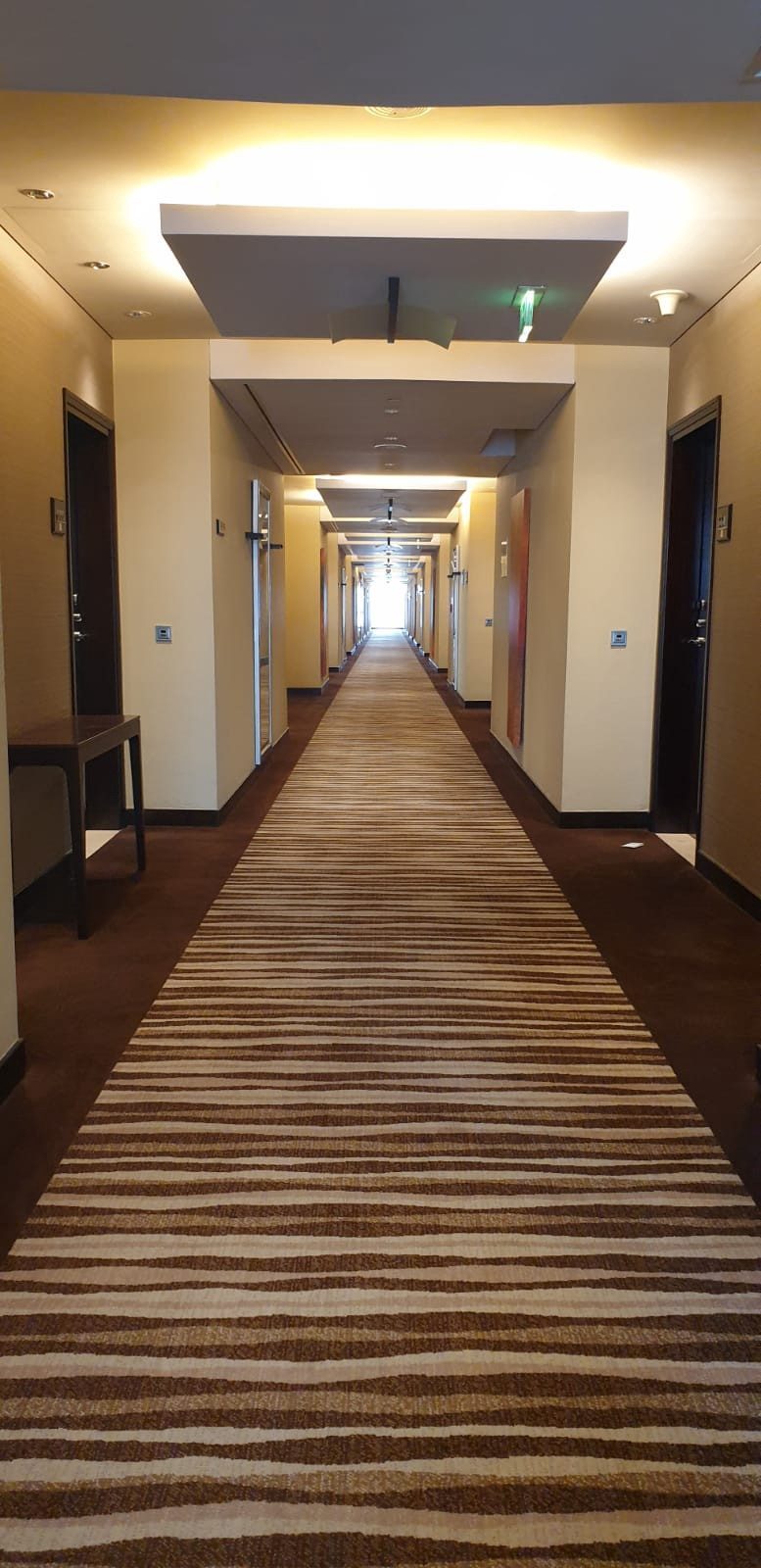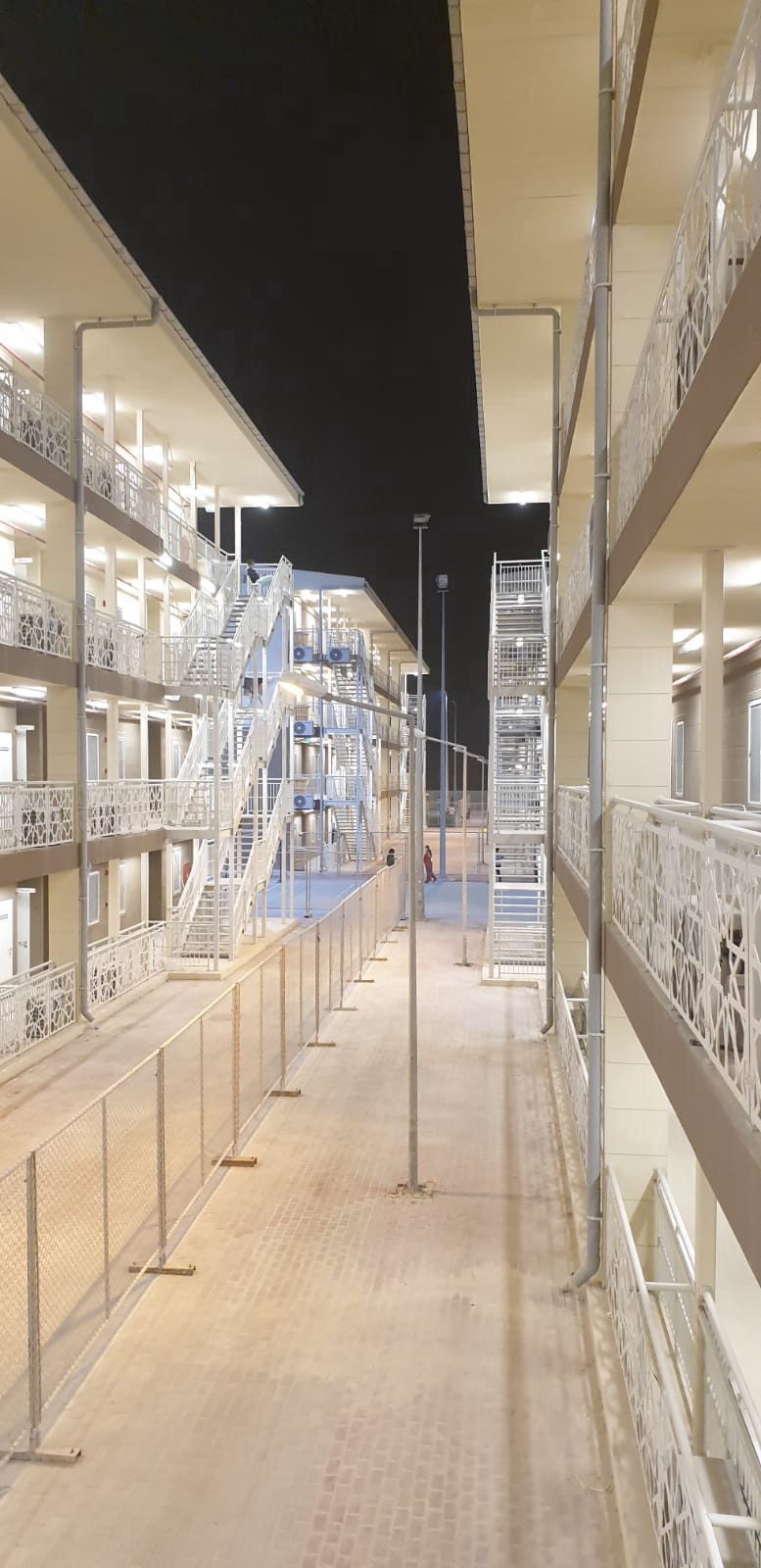by Mariam Versyani
Doha News speaks to Ayesha , a mother of 3 living with her husband and kids (aged 7, 5 and 3) in Madinat Khalifa who contracted coronavirus at the beginning of Ramadan.
Ayesha is a researcher and Ph.D. student in Biomedical Science. She writes about her experiences in Qatar, on travel, and food on her Instagram @sojourninginlife and @the.food.scientist.
Please note that this is a rapidly changing situation. This article below is based solely on Ayesha’s experience and you must refer to the authorities for accurate, up-to-date information.
When and how did you get tested for COVID-19?
On the 1st Ramadan, most of my family started feeling some mild symptoms like sore throats and body aches. Two or three days later, I developed a fever and cough which prompted me to call the HMC hotline on 16000. They directed me to go to our local Health Centre which would make an assessment and test me if I met the criteria for testing.
How do you think you contracted COVID-19?
I went in for the test expecting to rule out COVID-19, as a family we hadn’t ventured out of the house for about two months. I was working from home, we had had no visitors and only one person was leaving the house either for work (reduced work hours, alternate days etc) or for grocery shopping.
It was a shock for us when my test came back positive the next day. I received a call from the Health Centre asking me to go to a holding facility at the Gharafa Health Centre, where I had an x-ray, ECG, and blood work done. Since all of that looked good they asked me to either go back home or stay there until the Ministry assigns and transfers me to a facility. I opted to stay there for the next two days as the rest of the family had not been tested yet.
How do they deal with families?
Having been tested before the rest of my family made matters a little complicated for me as I was moved into Umm Qarn Facility which was meant for single females. Three days after my test, a mobile testing team visited our house and tested everybody else. My husband and two of my three kids tested positive too. We were informed that everybody testing positive would have to be moved into a designated isolation facility as assigned by the Ministry. My younger son (3) tested negative and we were confused if he should stay with us. Since we had the option, we discussed with the medical team and decided that he would stay with his grandparents who had also tested negative.

Personally, I am very grateful for the physician who helped expedite the process of moving me from Umm Qarn to a hotel which could accommodate families and hence I could be with my children who tested positive, after being apart from them for a week. That week was by far the most stressful time. Being together, especially given the young age of my children, made me feel much more at ease despite the seriousness of the situation.
How did you find the facilities and arrangements at the isolation centers?
Apart from the five hospitals designated for COVID-19 patients who are designated as more severe cases, there are multiple other isolation facilities including hotels, villa compounds, and worker accommodations for all mild cases.
Each location has a clinic on-site staffed round the clock for any medical care required. All the meals were served for fasting /non-fasting patients. The food was very good and if anything the only complaint I had was the wastage due to abundance of food. I would like to thank all the cleaning and catering staff who despite working in close proximity to patients, were working tirelessly to provide us with all the necessities, delivering meals on-time and keeping the environment clean and safe.

No outside visits were possible of course, but friends and families can drop in any items you require at the security gates and it will be delivered to you. Food delivery is also possible in most places.
Overall, having a first hand experienced staying in 3 different facilities, I can say all the employees were doing the best to provide all the amenities and healthcare to citizens and residents alike, and this was all free of cost. I am reminded we are incredibly privileged to be in a country with such a well-resourced healthcare system.
What was the treatment you received and how was the recovery?
By the grace of God, we had only mild symptoms, nothing more than a fever and cough for a few days. These were being managed by standard over the counter medication.
Only people with more complications like breathing difficulties and those presenting with pneumonia were being treated with medication in hospitals, with the sickest patients requiring respiratory support, plasma therapy, and more.
Recovery, initially, was being determined by re-testing until negative results were showing. But what I’ve heard now is that’s changed and there isn’t much re-testing after the 14-day isolation, a symptom-free patient is considered recovered after the stipulated isolation period and can return home. We stayed a total of three weeks at the hotel and were discharged a day after Eid.
Did you experience any challenges?
Given the rapidly unfolding situation, there were quite a few instances where we felt a lack of coordination among the different departments. Accurate information was sometimes hard to obtain. For example, there was a lot of confusion regarding our discharge, for 2 to 3 days, every time the staff on duty changed they would give us different information as to when we’d be able to go home. Adding to the confusion was our status on the Ehteraz app, it took a couple of days to finalise and sort things out.

What would your advice to other people be?
I would like to remind all of us that the most worrying aspect of this pandemic may not the disease itself, as the symptoms for the majority are not serious, but rather it is the high transmission which puts vulnerable people at risk and can pressurise healthcare system. There are people who are seriously ill and fighting for their life. That is why we’ve been asked to physically distance and remain at home. If people who are being careful can contract it then what is to be said of the careless? So, it’s very important to take this seriously, adhere to the preventative measures directed by the authorities and cooperate with them whenever asked. Stay home and stay safe.
If you are diagnosed with COVID-19, worry and anxiety are inevitable but remember that stress is the worst enemy of the only known cure of COVID-19 — your body’s own immune system!
Are you a coronavirus survivor? How was your experience like? Let us know [email protected]







